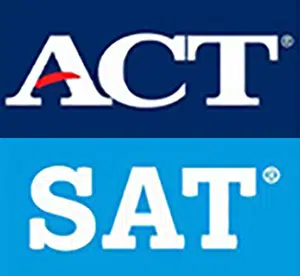University of California, San Diego (UCSD) is renowned for its commitment to academic excellence, groundbreaking research, and a vibrant campus community. UCSD offers diverse programs and opportunities that empower students to explore their passions and make a meaningful impact in their chosen fields. All programs have a strong emphasis on innovation and interdisciplinary collaboration. UCSD’s dedication to excellence extends beyond the classroom and it is also reflected in its thriving athletic program. UCSD offers a wide range of competitive sports teams as a member of NCAA Division II. The student-athletes of UCSD showcase their talent, determination, and teamwork. UCSD’s athletic program allows students to excel both academically and athletically. The UCSD students experience a dynamic learning environment with world-class faculty and state-of-the-art facilities. UCSD provides a transformative educational experience that prepares students to navigate the challenges of a rapidly changing world. As students embark on their educational journey at UCSD, they become part of a dynamic community that values creativity, intellectual curiosity, and the pursuit of knowledge.
Location
UC San Diego (UCSD) is located in the vibrant city of La Jolla. UCSD offers students a unique combination of natural beauty, cultural richness, and a thriving community. UCSD’s location in the heart of San Diego County provides students with access to a vibrant and diverse metropolitan area, offering numerous research opportunities and internships. UCSD’s location provides an inspiring backdrop for students to thrive and enjoy a truly enriching college experience.
Student Cohort
UC San Diego boasts a diverse student population. The university has a population of 41,885 students. The student population includes 33,343 undergraduate students and 7,756 graduate students. There are 48.1% men and 50.7% women on campus. 16.1% of the student population represents international students.
Acceptance Rate
University of California, San Diego has an acceptance rate of 36.6%. 130,380 students applied to UC San Deigo. 84,910 students were California residents, 23,951 were out-of-state, and 21,969 were international applicants.
Acceptance GPA
The average high school GPA of accepted students is more than 4.23.
Student-to-Faculty Ratio
The student-to-faculty ratio at UC San Diego is 19:1. 47% of classes at UC San Diego have fewer than 20 students.
Four-year Completion Rate
The first-year retention rate at UC San Diego is 95%. The five-year graduation rate is 86.98% and the six-year graduation rate is 89.35%.
Types of Admission
University of California, San Diego is a part of the University of California. All applicants apply through the UC application portal with just one application. The application needs to be submitted by 30th November every year.
Application Components
Complete the UC application and add the scores from the high school transcripts.
Standardized Test Score: The University of California is test blind. They have a holistic review of the application process.
Essays: The applicants can choose any 4 prompts from the Personal Insight Questions.
Academics
UC San Diego’s founders were inspired by the successful models of Oxford and Cambridge and they believed that students thrive academically and socially in smaller, closely-knit communities. UC San Diego stands out among major universities in the United States due to its unique family of eight undergraduate colleges: Revelle, John Muir, Thurgood Marshall, Earl Warren, Eleanor Roosevelt, Sixth, Seventh, and Eighth. Each college has its own campus neighborhood, residence facilities, staff, traditions, and general education requirements, offering a personalized educational experience.
Revelle College students at UC San Diego engage in a structured liberal arts program that establishes a strong foundation for any major. The college has an emphasis on the general-education curriculum. Revelle students are challenged with sequences in calculus and science, core humanities courses, and requirements in the arts and social sciences. A significant number of Revelle College students pursue graduate or professional schools, double majors, interdisciplinary studies, research projects, or graduate with university honors.
John Muir College students complete year-long sequences in social sciences, natural sciences, or mathematics, as well as courses in fine arts, foreign languages, humanities, and analytical writing. Muir College encourages active participation in intellectual development and provides a friendly and inclusive atmosphere for students to engage in a wide range of extracurricular activities.
Thurgood Marshall College at UC San Diego is dedicated to the active development of students as scholars and citizens. The college offers a comprehensive liberal arts and sciences education with majors available in various disciplines. The educational philosophy at Marshall College emphasizes an understanding of the diversity of cultures that comprise contemporary American society. Students engage in a three-quarter core sequence, Dimensions of Culture, which explores issues of race, religion, class, and gender. The college also encourages educational alternatives and public service opportunities, such as academic internships and leadership activities, to enhance the overall learning experience.
Earl Warren College is named after the former governor of California and chief justice of the United States. The college prepares students for intellectual, social, and professional life as responsible citizen-scholars. Warren College’s philosophy, “Toward a life in balance,” emphasizes the harmony between academic and co-curricular endeavors. Students engage in the Warren College Writing Program, Ethics, and Society courses, and fulfill general-education requirements through a major and additional programs of study. The college offers interdisciplinary minors in Law and Society and Health Care–Social Issues, along with academic internships and study abroad opportunities to foster well-rounded and culturally curious individuals.
Eleanor Roosevelt College at UC San Diego prepares students to thrive as global citizens through scholarship, leadership, and service. The college’s general education curriculum revolves around The Making of the Modern World, an interdisciplinary sequence that teaches students to think historically and comparatively about societies. Students choose a geographic region for in-depth study and complete coursework in natural science, foreign languages, fine arts, and writing. Roosevelt College fosters a supportive campus community and offers minors in Global Health, Human Rights, and International Migration Studies. The students also get the opportunity to engage in co-curricular activities like the International House and study abroad programs.
Sixth College embraces the theme of Culture, Art, and Technology through creativity and collaboration. The college encourages interdisciplinary approaches to learning and practice, bridging social and natural sciences, humanities, technology, and the arts. Students complete the three-quarters core sequence in Culture, Art, and Technology, which develops reflexive understanding and approaches issues from interdisciplinary perspectives. Sixth College emphasizes interactive skills, cross-cultural understanding, multimedia communication, and fluency in information technology. The curriculum culminates with a practicum experience, providing students with real-world problem-solving opportunities and connections with campus units and communities.
Seventh College at UC San Diego equips students to confront the challenges posed by our changing planet. The college’s flexible general education curriculum encourages an interdisciplinary approach to global issues. Students gain critical academic and job market skills through project-based learning and research opportunities. Seventh College fosters a positive and collaborative atmosphere while addressing complex global issues. Students develop a well-rounded understanding and are prepared to make a difference in the world.
Eighth College at UC San Diego will welcome its first-year class in fall 2023 and the transfer class in fall 2025. Students will have the exceptional opportunity to shape the college’s community and establish its traditions. The college is centered on engagement and community, tackling complex global issues such as structural racism, economic disparities, health, and climate disruption. This focus aligns with UC San Diego’s campus-wide initiative to combat structural racism. The general education requirements at Eighth College will include a selection of courses from various departments, providing students with a broad introduction to diverse intellectual traditions. An Eighth education offers scholastic opportunities through interdisciplinary approaches, emphasizing community, wellness, anti-racism, and social justice in writing-intensive courses and interdisciplinary research.
Cost of Attendance
California Resident
Living with Parents
Components of CA Resident Tuition and Fees $18,147
UC Systemwide Tuition and Fees: $13,752
UC San Diego Campus Fees: $2,310
UC San Diego Health Fee: $2,085
Food & Housing $7,716
Books, course materials, supplies, and equipment $1,308
Miscellaneous Personal Expenses $2,049
Transportation Expenses $2,280
Estimated CA Resident Cost Totals $31,500
On Campus
Components of CA Resident Tuition and Fees $18,147
UC Systemwide Tuition and Fees: $13,752
UC San Diego Campus Fees: $2,310
UC San Diego Health Fee: $2,085
Food & Housing $17,325
Books, course materials, supplies, and equipment $1,308
Miscellaneous Personal Expenses $1,632
Transportation Expenses $858
Estimated CA Resident Cost Totals $39,270
Off-Campus
Components of CA Resident Tuition and Fees $18,147
UC Systemwide Tuition and Fees: $13,752
UC San Diego Campus Fees: $2,310
UC San Diego Health Fee: $2,085
Food & Housing $16,053
Books, course materials, supplies, and equipment $1,308
Miscellaneous Personal Expenses $1,788
Transportation Expenses $1,509
Estimated CA Resident Cost Totals $38,805
Non-California Resident
Living with Parents
Non-California Resident Supplemental Tuition $32,574
Estimated Non-California Resident Cost Totals $64,074
On-Campus
Non-California Resident Supplemental Tuition $32,574
Estimated Non-California Resident Cost Totals $71,844
Off-Campus
Non-California Resident Supplemental Tuition $32,574
Estimated Non-California Resident Cost Totals $71,379
In conclusion, UC San Diego (UCSD) is a beacon of academic excellence, innovation, and community. UCSD offers students a transformative educational experience with its commitment to cutting-edge research, rigorous academic programs, and a vibrant campus life. UCSD continues to shape the future of well-rounded individuals ready to positively impact the world.
We can help you with your college application process. Working with study abroad consultants, overseas education consultants, or, as more commonly known, college counsellors, can help you plan ahead and make those high school years count. Ivy Central offers exceptional focus to help you prepare for college admissions throughout the high-schooling years. Start today!







